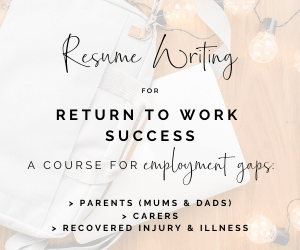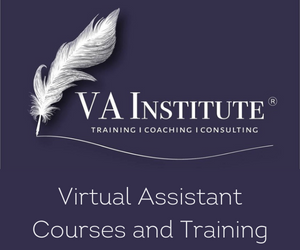Job searching can be overwhelming and disheartening. From creating a great resume, searching through hundreds of listings, tailoring job applications, to receiving rejection letters (if you get a response at all) and finally getting an interview. We can certainly understand why the thought of looking for a new job is enough to make you stay at your current one!
Job searching, like anything, is actually a skill you can improve on, if you have the right tools and resources. So here are a few tried and tested tips and strategies to improve your job search capabilities so that you can find, and land, the right job for you.
Hints, tips and strategies for job searching
Keep in mind some of these tips will be useful to people already in employment and searching for the next step, others will be applicable for all job seekers. Take the ones that will help you the best and go for it.
1. Make a list of what you are looking for.
What industry are you applying for? What level of position? Do you want flexible or remote work? Make a list of the requirements for the job you are after and if a job ad doesn’t meet 70 – 80% of them, keep looking.
2. Stop procrastinating.
We know job searching seems daunting, but you won’t have any less to do by waiting. Get stuck into it and make the first step.
3. Don’t apply for everything you see.
If you are not currently working, you may be tempted to apply for everything you find, just to get something. But keep in mind that if you are not suited to the job, or don’t have the right skills for it, then you are not going to get looked at anyway. Spend more of your time and energy putting together a tailored application for jobs you are suited for, then just applying for everything you find.
4. Search for people who have the job you want.
This doesn’t mean stalk anyone but have a quick look on LinkedIn at people who have the sort of job you want. What sort of skills and experience do they have? If they all have something in common, such as a particular course they’ve completed, that you don’t have, then look at ways you can get to their level of skill.
5. Audit your situation.
Are you finding that the job you really want is requiring more experience or skills than what you currently have, but don’t know the pathway to get there? Really audit your situation and get a realistic idea of where you are at in your career right now.
Tip 4 asks you to find some people with the job you want on LinkedIn. Once you’ve audited where you are right now, if you’ve found you’re not quite at your ideal job yet, looking at LinkedIn can also help you here by looking at the pathway people took to get to a particular job, as most people will put their previous experience on their profile. Look at the ways people got to your ideal job and you might find the right pathway that you are suited for now that you can use as a stepping stone to get the experience for the job you really want.
6. Moving internally can be smarter than job hopping.
Is the reason you are wanting to move jobs because you like the company but not the job, or you are looking for more responsibility? Then your best bet is probably to stay within the same company. Research has shown that if you job hop, you may be able to gather a pay rise, but the time until promotion is extended, as you need to now re-establish yourself at a new company before you’ll be considered for advancement.
Consider the reason you are wanting to move positions. If you are looking for career advancement, you might be better off applying for things in your own company. If you do still want to change companies, then look for positions that will give you more responsibility or a promotion from what you have now or be aware that you may be in for a longer time before advancement while you establish yourself.
7. Don’t get upset about rejection.
If you’re applying for many positions, expect some rejection. This can be demoralising but remember it’s not about you. There might be many applications for one position and there might only be one little thing that gives the position to someone over you.

8. Gather feedback from your applications.
If you do get a rejection, and you’ve had at least a phone interview, then ask for feedback on your application to see if there is anything you can improve on for next time. There could be something on your resume or in your interview technique that can be worked on which you won’t know about without feedback.
9. Get a great resume.
Your resume should be designed so that employers will want to speak to you further. Keep it short, don’t hash out pages and pages of every job you’ve had since you were 15.
Showcase your achievements, not the duties of your positions. Outline what you achieved at your jobs, rather than your day-to-day tasks. Make sure you’re tailoring your resume to the positions you are applying for and it is relevant. And don’t’ lie, it’s too easy to be found out these days.
If you have a gap in your resume, due to children, caring, or illness (or even I your don’t), then our resume program Resume Writing for Return to Work Success can help you craft your resume. Or if you really struggle to write things yourself, there are many resume writers our there that can write one for you.
10. Tailor your cover letter.
There is nothing worse as an employer then getting a copy and pasted cover letter that tells you nothing about the person applying for the position. I’ve also seen ones where they forgot to change the companies name before sending it – not a good look.
Make sure you are tailoring your cover letter to the company and position you are applying for. Do a little bit of research and highlight your suitability for the role and how you match the selection criteria. Our tips on how to write a great cover letter is a good starting point.
11. Be organised.
If you’re currently employed, you might only be applying for a few positions that really pique your interest. However, if you are unemployed you might be applying for a lot of positions and that is where it pays to be organised.
Write down the company, job title and the date you applied for the position. This way you can keep track of when and what you are applying for. This makes it easy if you want to follow up, or if you get a call for an interview. If you like, you could put it all into a spreadsheet, including responses you get, follow ups you have made and any interviews either phone or face to face. You might be reading heaps of job ads, so it pays to be organised and know if you’ve already applied for something.
12. Be confident and positive.
Try not to get bogged down in negativity when doing your jobs search or attending interviews. If you are positive and confident in your mindset this will show up in your application. If you don’t believe you are the right person for the job, then why would an employer? This is especially important in interviews. Go in confident and positive that you are the person they are looking for.
13. Prepare stories for a job interview
Yes, you won’t know the exact question you’ll be asked in a job interview, but there are a lot of standard ones that you can prepare for. Things like “tell me about a time where you showed exemplary customer service” or “when have you had to deal with difficult customer/supplier/colleague”. These sorts of questions you can start thinking about and have stories prepared. If you want to know what questions might come up and other things to think about in a interview then this article about interview tips may be helpful.
14. Get career ideas from personality tests.
If you’re not even sure what jobs you want to go for, then one way is to take online personality and career tests. There are many available and a lot are free. You take the test and it evaluates your personality to suggest career paths and jobs that would be more suitable for you.
15. Clean up your online social profile.
Just like you want a company and position to be a good fit for you, an employer wants to make sure that you are a good fit for their company. Yes, prospective employers can and will Google your name and check out any social media before offering you a position. Even if you have all of your social media set to private, actually check to see what someone can see, because even private accounts will show things like previous profile pictures or anything you’ve accidently made public.
Go into an incognito window and search for yourself and see what comes up. You will then know if you have to clean anything up that can be found that may inhibit an offer of employment.
16. Network
There is a large number of jobs that are never advertised. So if you’re looking for a job, it pays to network. Join LinkedIn or Facebook pages and groups in your career path, or companies you are interested in, attend professional events in your industry, and think about people you already know who work for companies you’re attracted to or may know of positions.
17. Don’t just rely on mainstream websites
When you think about searching for work online, most people go to Seek or CareerOne and be done with it. Yes, those sorts of sites are big and have lots of positions advertised, but they can also be expensive for employers and so many are turning to smaller of niche sites. Don’t just restrict your job search to the big websites, but look at other areas to find work. You will also find less competition for the advertised positions on the lesser known or industry sites.
18. Know your strengths.
Nobody is great at everything. But everyone is great at something. If you know what you are really good at, it is easy to highlight this in resumes and interviews. Work out your strengths so that you can confidently use them to your advantage.
19. Dress for success.
If you’re job searching, don’t do it in your pyjamas. This may sound a bit weird but it helps to get into a professional mindset by being dressed how you would if you were going to work or an interview. If you are scheduled for a phone interview, make sure you are dressed and ready to go. Even though employers won’t be able to see you, your attitude and voice will come across better if you are in the ready to interview mindset.
20. Address being overqualified.
If you are well overqualified for a position some employers will overlook you for the job, even if it is exactly the job that you are looking for. You can tailor your resume to exclude some aspects but this can risk you excluding things that would land you the job. So the answer is to just address your overqualification and tell them why you want that job and how your skills and experience can benefit the company.
21. Don’t burn your bridges.
Most industries are actually pretty small. Even if you leave one company, try to do it in a civilised and professional manner. If you stay in the same industry there’s every chance that somewhere along the way you will work with someone again.
Previous colleagues and bosses are also good ways to network new job opportunities. If they have moved on to new companies and you have a good relationship with them, you may find you get told about positions available that would otherwise not be advertised.
22. Use a professional email address.
You’re sexydolphin@ email address might have been cute and funny at 16, but it’s not the sort of email address you should be putting on your resume. Email addresses are easy and free to set up so there’s no excuse to not have a professional one for your job searching. The simplest is to just use your name. If you still want to use your other quirky one for personal stuff that fine, but it’s a good idea to have a boring one for your job search.
23. Don’t send out too many resumes at a time.
Sometimes you might spend an entire week sending out resumes and applying for jobs, but if you send out too many at once, you can lose track. Then when someone rings you about an application you have no idea what job they are talking about because you’ve applied for so many. Try to only send out as many applications as you can keep track of (and use your spreadsheet in tip 11).

24. Research the company before applying.
Spend a bit of time Googling and researching the company before applying for a position. You can use this information to tailor your cover letter and resume and it shows that you have taken the time and effort to actually investigate the company you are trying to join. You’re research might also find that it’s not a company you want to work for and you decide you don’t want to apply.
Where possible find out who to address your application to – don’t just write to whom it may concern. If you can’t get hold of a contact at the company, address your letter to ‘Hiring Manager’ if applying to a small business, or ‘Recruitment / Human Resources Department’ to large companies to ensure it ends up with the right person.
25. Check for spelling and grammar errors.
There is absolutely nothing worse than reading a resume or cover letter that states how you are very detail orientated that is then full of spelling errors. Make sure you are checking for all errors and get someone to proofread the final copy. Sometimes you end up looking at something so much you can’t see any errors, and a fresh pair of eyes can pick up things you’ve missed.
26. State how you can help the employer.
Resumes, cover letters and interviews aren’t actually about you. They are about showcasing how you can help the employer achieve their goals. Don’t just state how wonderful you are, phrase it all in a way that will let people know how your skills and experience are going to help achieve the objectives of the company.
27. Use multiple platforms if you have a big resume.
A cover letter should entice the reader to go onto your resume, and your resume should want them to look further at you and call you to have a chat. Keep your resume short (maximum 2 pages) but if you have more information you want to convey about your job history, skills or experience, put up a more comprehensive profile on LinkedIn or another platform and link to that in your resume.
28. Don’t be scared of a resume gap.
People tend to panic if there is a big gap on their resume. This can be due to unemployment, children, caring responsibilities, injury or illness. Life happens and more employers know that so you don’t need to stress as much about a gap if you explain it in the correct way and don’t just ignore it. Here’s some tips on how to explain and employment gap.
29. Don’t be afraid of contract or temporary work.
If you’re not currently employed, you may be looking for full time positions only. However, don’t discount contract of temporary work. It is a great opportunity to showcase your skills to an employer while getting paid. If you can wow an employer in a temporary position, you might just find yourself being offered a permanent one. And if not, you can still be job searching at the same time for something after the contract runs out.
30. Use multiple job searching platforms.
Don’t just look for work in one place. Look online, use networking, go to companies directly and yes, there are even still job ads in the newspaper.
31. Follow up with a thank you after interviews.
A quick email to say thank you after an interview can make you stand out from other candidates. Thank the person for their time and give them a compliment about their professionalism or company (if it’s warranted). Make sure you are sincere and not just sucking up.
32. Ask for help
If your feeling completely overwhelmed, or just want a second opinion, don’t be afraid to ask for help. Whether it’s asking a trusted friend or family member to take a look over your resume (even if its just to make sure it makes sense) and run some practice interviews with you to engaging someone to write a full resume and cover letter. There are people and services around to help you if you want them, in all spectrums of the process. You can even hire people to style a great interview outfit so you can slay the confidence thing.
Job searching, like anything, takes time and effort. If you want to land your perfect job, you need to be ensuring that you are doing it properly. Tailor your resume to the positions, do some research and ensure your cover letter is appropriate for the job ad. This will lead to more success in getting interviews, where you can wow them with how you can help the company succeed.






